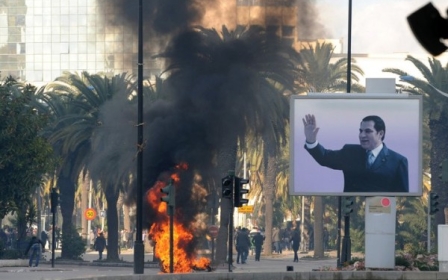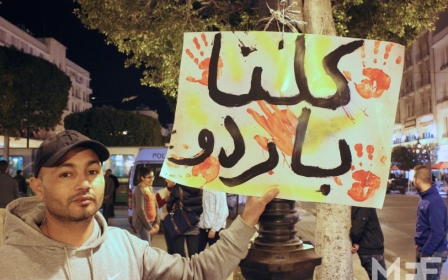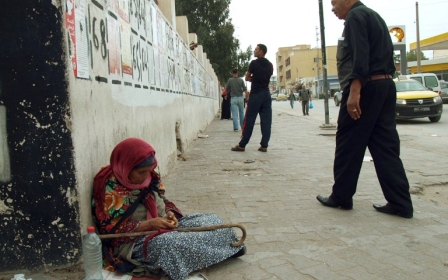Nine suspects arrested over Tunis attack

NIne suspects have been arrested over Wednesday's attack on Tunis's Bardo National Museum which resulted in the death of 17 tourists, the Tunisian presidency said on Thursday.
Further information about the arrests has yet to be released.
Earlier this morning, two Spanish tourists were found alive after spending the night hiding inside museum after the deadly attack, the emergency services said.
A museum employee hid the two Spaniards in an office during the four-hour rampage by gunmen in military uniform.
All three were taken to hospital on Thursday for medical checks after their ordeal, a civil protection official told AFP outside the National Bardo Museum.
The mother of the museum employee, Lassaad Bouali, said she had feared her son had been killed.
"I thought my son was dead. It's such a relief," she told AFP, declining to give her name.
There was no immediate explanation from the authorities as to why they had failed to find the trio when police secured the building after the attack.
'To our last breath'
Wednesday's attack also left more than 40 people wounded.
Initial reports had indicated that seven or eight tourists and one Tunisian had been killed, but this number soared to 17 tourists and at least one Tunisian once the building was stormed.
Soon after the attack, President Beij Caid Essebsi vowed Tunisia would fight those who committed the attack "to our last breath".
"I want the Tunisian people to understand that we are in a war against terrorism and that these savage minorities do not frighten us," said Essebsi, who visited some of the dozens being treated for wounds in a Tunis hospital.
"We will fight them without mercy to our last breath."
Local media reported that around 200 people had been in the museum vicinity at the time. The Italian Foreign Ministry confirmed that 100 of its nationals had managed to flee the scene, with an as yet unconfirmed number of tourists and Tunisians having been taken hostage.
The Tunisian prime minister vowed there would be a tough response to the attack.
“We will act relentlessly without mercy towards those violating Tunisia,” Habib Essid told media.
Tunisian gunmen
A security source said on Wednesday night that authorities had identified the two deceased gunmen, both Tunisian nationals, according to local news site al-Chorouk.
The men were identified as Hatem al-Khashnawy, from the western city of Kasserine, and Yasin al-Abidi, a resident of the capital.
Khashnawy's father told the site that his son had disappeared three months ago, but had since made contact with the family using an Iraqi mobile phone number.
Authorities are also seeking to question three other men who are believed to have been directly involved in the attack.
Crowds gathered outside the museum after it was stormed by police, and cheered the security services as they left the building, despite the heavy casualty toll, reported Eric Reidy for Middle East Eye.
Many gathered outside the municipal theatre after the attack, in a demonstration called for by the Ennahda movement.
There was no immediate claim of responsibility for the attack. While the museum is located close to the Tunisian parliament, which had to be evacuated after the initial shots were heard, it is so far believed that the museum was the intended target.
European Union foreign policy chief Federica Mogherini blames Islamic State (IS) for the attack, saying that the “Daesh terrorist organisation is once again targeting the countries and peoples of the Mediterranean region.
"This strengthens our determination to cooperate more closely with our partners to confront the terrorist threat," she said.
However, analysts have questioned Mogherini's assertion, saying that Tunisia faces a broad range of threats and that the attack could have been carried out by local militant groups and was not necessarily the work of IS.
New MEE newsletter: Jerusalem Dispatch
Sign up to get the latest insights and analysis on Israel-Palestine, alongside Turkey Unpacked and other MEE newsletters
Middle East Eye delivers independent and unrivalled coverage and analysis of the Middle East, North Africa and beyond. To learn more about republishing this content and the associated fees, please fill out this form. More about MEE can be found here.




